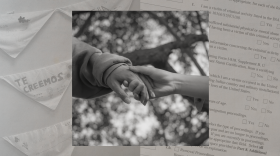President Trump’s trip to Asia continues through the weekend as he addresses trade and economic links with world powerhouses such as China, even as Republicans back in the United States debate the tax cut measure working its way through the Senate.
Trump was in Asia as a handful of high-profile elections took place in the U.S. on Tuesday, elections that largely delivered victories to Democrats. However, Cyr notes that the trip was most likely not planned intentionally to distract from local elections - especially since it is not often that a President's party gets challenged to such a degree in off-year elections.
Cyr says that there are many important events happening in Asia apart from the "non-stop hysteria" emanating from and regarding North Korea and the nuclear threat. The Asia-Pacific Economic Cooperation (APEC) summit in Vietnam is crucial to better personal relationships between Trump and other world leaders according to Cyr.
"Two vital allies of the United States, two traditional, very hostile enemies, Korea and Japan, with a long bitter history, especially in the 20th century. And establishing better rapport with those two leaders (Prime Minister Shinzō Abe and President Moon Jae-in) is probably the most important outcome," he says.
"The relationship with Japan is particularly important," Cyr adds. "He did not do so well in his first meeting with Chancelor Merkel of Germany. Both Germany and Japan have very moderate, very reassuring long-term leaders. And those relationships are for self evident reasons, particularly important."
Lake Effect foreign policy contributor Art Cyr is a professor of political economy and world business. He directs the Clausen Center for World Business at Carthage College in Kenosha.






